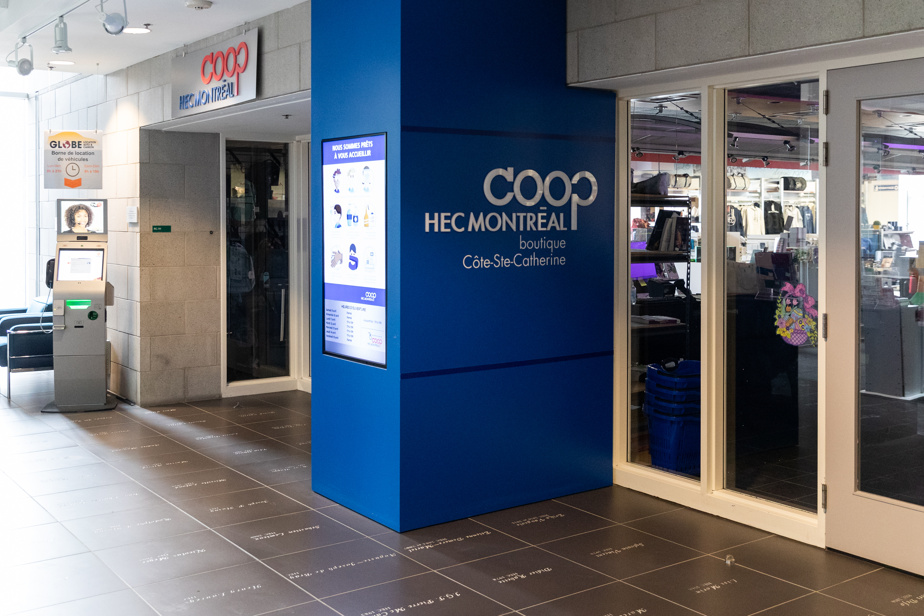More than two dozen student cooperatives are suing their insurance company, The Co-Operators, which is refusing to compensate them for the financial losses caused by their March 2020 closure, which the Quebec government ordered at the start of the pandemic.
Posted at 9:00 am
They assert that their policy includes protection against loss of income related specifically to the cessation of activities declared “by civil authorities” or after an “outbreak of an infectious disease”.
These student co-operatives, which sell books, computers, and other school supplies, aren’t the only ones spearheading this fight. Many companies insured for “operating losses” have also tried to be compensated by their insurer, but to no avail, asserts Yasmine Genetti, vice president of national affairs for the Canadian Federation of Independent Business (CFIB).
Thus, in the lawsuit filed in the Supreme Court on March 29, 2022, he claimed 26 student cooperatives, including those of the University of Quebec in Montreal, HEC Montreal, Collège de Rimouski and Cégep de Saint-Jean-sur-Richelieu for their insurance company. A total of more than $1.5 million in losses incurred due to their discontinuation of their activities.

PHOTO MARTIN TREMBLAY, PRESS
HEC Montreal Students’ Cooperative
As of May 2020, they alternately—depending on their policy expiration date—send a “Notice of Claim for Compensation for Financial Losses incurred due to Circumstances Related to the COVID-19 Pandemic, all in accordance with the terms of the policy,” the lawsuit reads. It is noteworthy that the document provides “various protection against real loss of income which may result in particular from the prohibition of access to secured premises by order of civil authorities, or even from the cessation of commercial activities following the spread of a ‘contagious or contagious disease that must be reported’.”
However, the participants answered them in the negative. The insurance company does not intend to compensate them. It acknowledges that “COVID-19 is a contagious or contagious disease that can be reported.”
However, to explain its decision, it “claims that to the best of its knowledge, there have been no cases of COVID-19 in or near the plaintiffs’ insured buildings.” As a result, there has been no total or partial disruption to business operations due to a localized case of COVID-19. In summary, Defendant maintains that the cessation of the plaintiffs’ activities resulted from taking general measures for the purpose of combating the epidemic and not from an isolated case of COVID-19 in [les] The lawsuit says.
There was accurate coverage. We are absolutely convinced that we are right to sue.
MAnd Dominic Gilbert and M.And Julian Dubois, lawyers representing cooperatives
Our business partners declined to comment further on this, “because it is an active lawsuit,” we were told via email.
Several complaints
Although he was unable to give his opinion on the lawsuit against student co-operatives, CFIB’s Yasmine Genetti, which represents companies in the retail sector in particular, asserts that several members with operating loss protection “tried to compensate them for by their insurance company at the beginning of the epidemic.
There are many companies that thought this clause would allow them to get compensation. But they did not succeed. Epidemics are not covered by these contracts.
Jasmine Janet, Vice President of National Affairs, Canadian Federation of Independent Business
“Usually, when we talk about property and casualty insurance, business interruption coverage generally relates to material damage,” explains Pierre Babinski, director of communications for the Canadian Insurance Bureau. He cites in particular the case of a fire that would prevent the company from continuing its activities.
“It is possible that some insurance policies will have language that covers government orders, but what we generally see more are the clauses that are really about operating losses from physical damage, he insists. The majority of commercial insurance policies are not specific enough to mention government orders.”
Two years into the pandemic, Mr Babinski has been unable to determine whether some insurance companies now offer coverage to businesses related to illnesses such as COVID-19.

“Subtly charming problem solver. Extreme tv enthusiast. Web scholar. Evil beer expert. Music nerd. Food junkie.”


